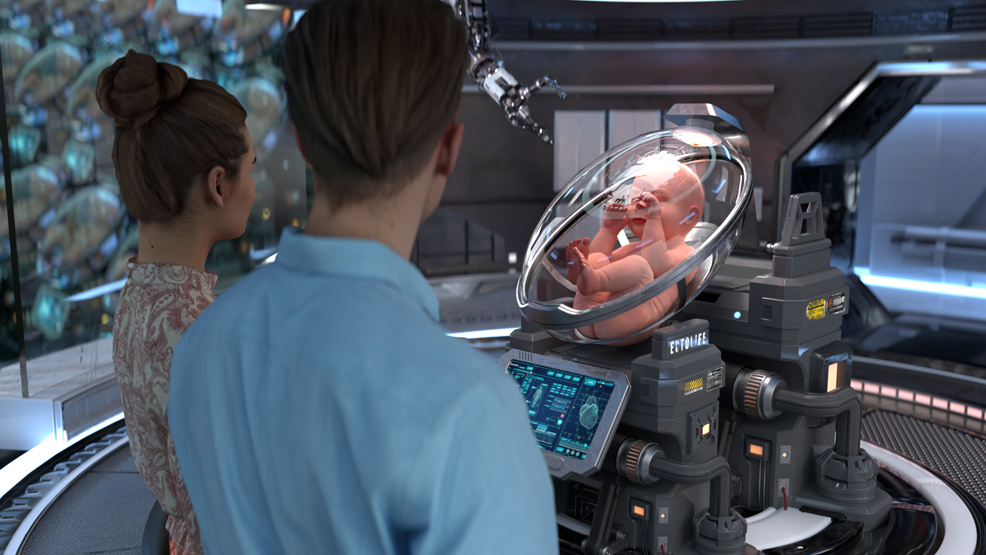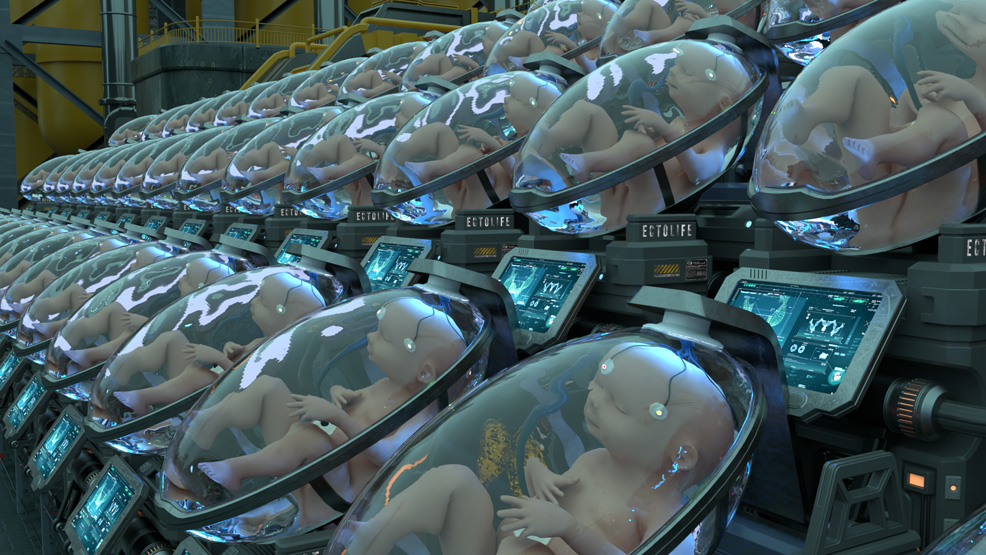
11th December 2022 "EctoLife" artificial womb concept revealed A German-based biotechnologist and filmmaker has presented his concept for an artificial womb. This futuristic device could allow a foetus to grow and develop outside the body, without the need for women to undergo pregnancy.
Hashem Al-Ghaili is a biotechnologist and filmmaker who strives to educate the public on science, technology, and future-related issues. In addition to regular speaking engagements, his work includes hundreds of original videos, which have been viewed across social media over 17 billion times. In 2014, he won the Futurism Excellence in Science Media and Literature Award. Al-Ghaili also directed, produced and wrote the sci-fi film Simulation (2019), which won the Award of Excellence and Best Visual Effects from Los Angeles-based international awards competition, Global Shorts. For his latest piece, Al-Ghaili has depicted the potential future of reproductive technology. EctoLife is a concept for the world's first artificial womb facility, able to grow up to 30,000 babies a year in small pods. The design of the machine is based on more than 50 years of groundbreaking scientific research conducted by researchers worldwide.
For many people, the images and video seen here will trigger 'future shock' – that sense we sometimes feel of technology progressing faster than we are comfortable with. The concept would certainly face opposition from religious institutions. But aside from ethical concerns, and the rather dystopian appearance of these lab-grown babies, artificial wombs have the potential to bring major benefits, and solutions to long-standing problems – if perfected and shown to be safe. It could, for example, allow infertile couples to conceive a baby and become the true biological parents of their own offspring. It could provide a solution for women who had their uterus surgically removed due to cancer or other complications. Premature births, C-sections, and the pain of childbirth would all become things of the past. Currently, around 300,000 women die each year from pregnancy or complications shortly afterward. If developed on a large enough scale, it could help countries that are suffering from severe population decline – including Japan, Bulgaria, South Korea, and potentially many others. While overpopulation is currently a global issue, underpopulation may emerge towards the end of this century. Sperm counts have already fallen by 62% in the last 50 years.
While many challenges lie ahead, reproductive technology has made considerable progress in recent years. A milestone occurred in 2017, when scientists developed an extra-uterine life support system, or 'biobag', used to grow lamb foetuses. The first human version may be closer than we think. Elizabeth Chloe Romanis, an expert on reproductive ethics from the UK's Durham University, writes in the British Medical Journal: "It seems probable that we are only several years away from testing [artificial wombs] on human subjects." Meanwhile, Dr. Carlo Bulletti, Associate Professor at Yale University, thinks that a fully functioning artificial womb could be realised within the next 10 years. As well as replicating the natural processes of growth and development, it may be possible to tweak certain genetic characteristics of the baby – not only minimising the risk of life-threatening diseases, for example, but allowing parents to pick and choose features like eye and hair colour, skin tone, height, strength, and even their level of intelligence. Once again, it goes without saying that these designer babies would raise huge moral and ethical concerns, particularly if traits could be enhanced or made superior to those of a 'normal' human. The video below demonstrates various other advantages that EctoLife may offer – such as an AI-based monitoring system, app connection to the pod, haptic suit, and VR live view. Looking even further ahead, Al-Ghaili predicts that parents-to-be would eventually have the option to install a device in the comfort and privacy of their own home. What do you think of EctoLife, and the concept of artificial wombs? Let us know in the comments below!
Credits: Hashem Al-Ghaili / ScienceAndStuff
|









